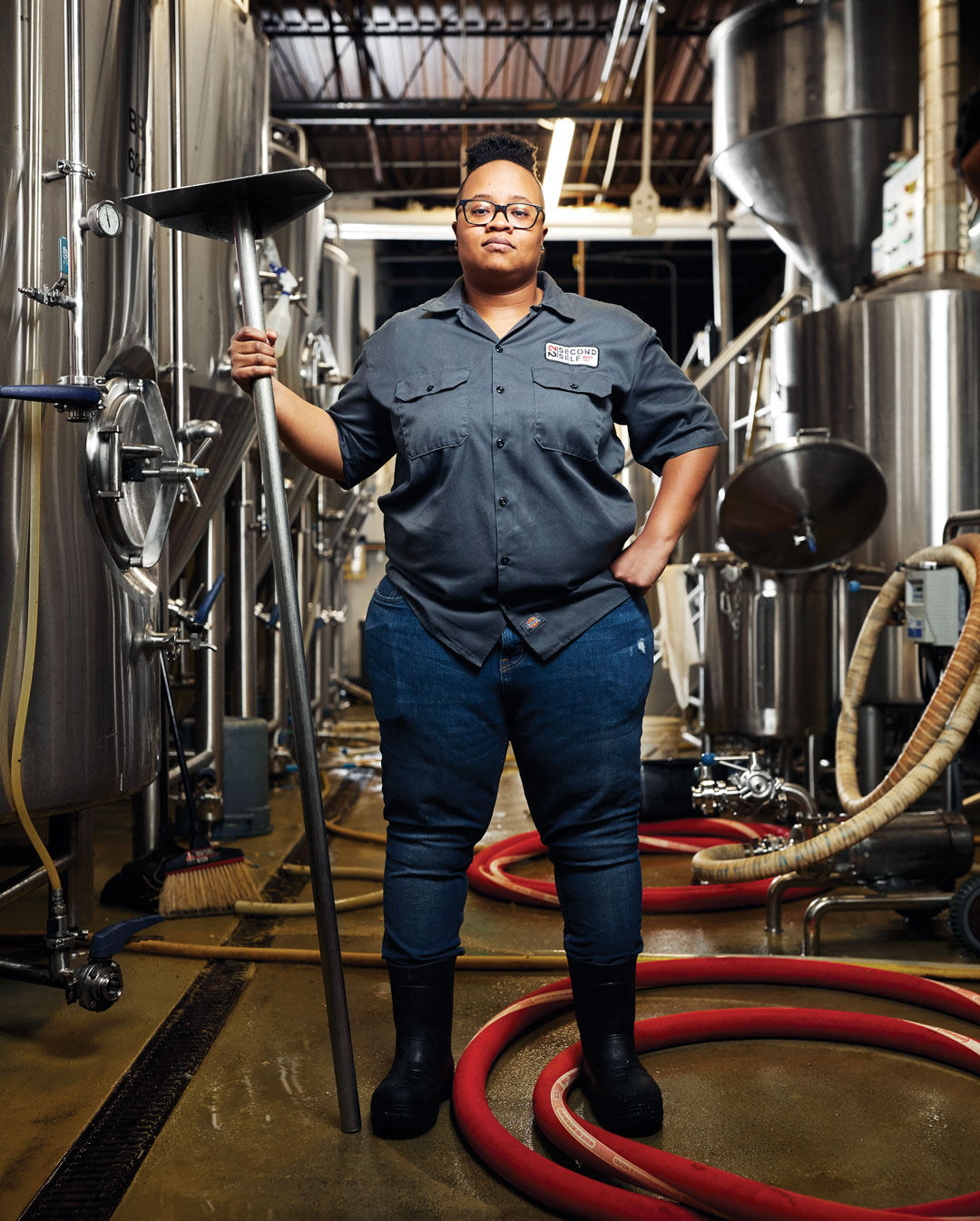TagsAtlanta Beer BoutiquebeerBlue Tarp Brewing CompanyCraft BeerDown Home BrewingdrinksGeorgia beerGRITS Brewinglocal beerRiverwatch BrewingSecond Self BreweryWild Heaven Beer
Home What’s up with all the white dudes dominating Georgia's craft beer scene?
The Rise of Georgia Beer: Everything you need to know about our craft brew scene
What’s up with all the white dudes dominating Georgia’s craft beer scene?

Photograph by Corey Nickols
Georgia is home to a groundswell of craft breweries with increasingly diverse offerings—yet its tasting rooms, festivals, and brewery staffs remain strikingly homogeneous, thanks to decades of gendered advertising and systemic discrimination that makes it difficult for minority entrepreneurs to raise the level of capital required for a brewery. You’d be forgiven for concluding that this seemingly progressive culture was engineered for chambray-clad guys with beards and no one else.
But women and people of color are not only consuming more craft beer; they’re making more of it, too. GRITS Brewing, cofounded by two women, expects to open this year. Down Home Brewing—founded by Chris Reeves, a black man—is already distributed throughout the state (thanks to a contract brewing arrangement with Blue Tarp in Decatur) and working toward a brick-and-mortar. Beer educator Jenn Price is raising funds to open the Atlanta Beer Boutique, a retail and learning space, and says her classes are attended mostly by black women. “I never knew there were so many other black women really into beer like me,” she says. The stereotypical image of a craft-beer consumer is blurring.
Second Self’s Zuri Coleman, one of just a few women brewers in Atlanta, says the scene is diversifying—gradually. She recommends that breweries make their spaces more inclusive by inviting local businesses and community organizations to set up tables in tasting rooms on weekends, for instance. “One of the best ways to reach out to people in minority groups is to show that you support them,” Coleman says.
Outreach has come up in conversation a lot for Wild Heaven cofounder Nick Purdy, who also serves on the national Brewers Association’s diversity committee. The Avondale Estates brewery is opening its second location in the historically black West End later this year, next door to Monday Night Brewing’s Garage, which opened last fall. Purdy wants to make sure their neighbors know that the space is for them, “not just for white people from around Atlanta who parachute into the West End.” That translates into staffing, too—in terms of creating a positive economic impact on the neighborhood but also creating an environment where no one walks in and instantly feels out of place.
Price agrees that breweries can be a lot more intentional about how they hire to alleviate the “invisible barriers” that women and people of color might perceive in these spaces. Training, too, is key. Anne Sloan, cofounder of Augusta’s Riverwatch Brewing (which has an all-woman brewing staff), knows how patronizing it can feel when a bartender assumes she wants to drink something light and sweet. She trains her staff to make educated recommendations based on guests’ preferences, rather than make assumptions based on what they look like.
But to truly shift the homogenous culture of craft beer, real change has to start on the brewing floor. The more diverse a brewery’s staff, the more likely it is to send a message that everyone is genuinely welcome. “Beer is the drink of the people,” Purdy says. “There shouldn’t be anything exclusive about it.”





![The North Carolina Museum of Natural Sciences’ newest exhibit is a [pre]historic first](https://cdn2.atlantamagazine.com/wp-content/uploads/sites/4/2024/04/DD-3-100x70.jpg)



